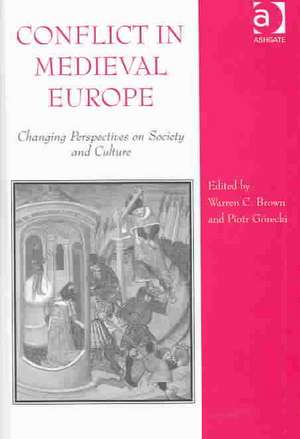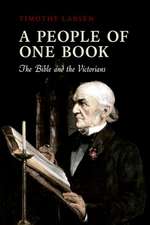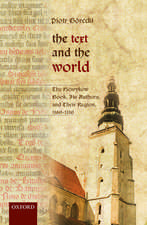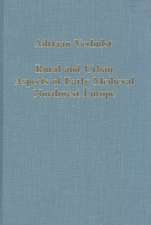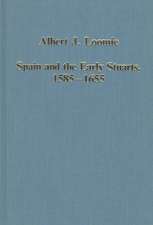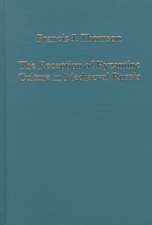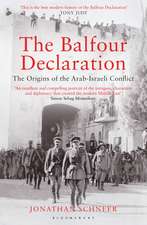Conflict in Medieval Europe: Changing Perspectives on Society and Culture
Editat de Warren C. Brown, Piotr Góreckien Limba Engleză Hardback – 4 iul 2003
Preț: 1006.60 lei
Preț vechi: 1227.57 lei
-18% Nou
Puncte Express: 1510
Preț estimativ în valută:
192.65€ • 200.35$ • 161.21£
192.65€ • 200.35$ • 161.21£
Carte tipărită la comandă
Livrare economică 15-29 martie
Preluare comenzi: 021 569.72.76
Specificații
ISBN-13: 9780754609544
ISBN-10: 0754609545
Pagini: 344
Dimensiuni: 156 x 234 x 21 mm
Greutate: 0.64 kg
Ediția:1
Editura: Taylor & Francis
Colecția Routledge
Locul publicării:Oxford, United Kingdom
ISBN-10: 0754609545
Pagini: 344
Dimensiuni: 156 x 234 x 21 mm
Greutate: 0.64 kg
Ediția:1
Editura: Taylor & Francis
Colecția Routledge
Locul publicării:Oxford, United Kingdom
Cuprins
Contents: Preface; What conflict means: the making of medieval conflict studies in the United States, 1970-2000, Warren C. Brown and Piotr Górecki; 10th-century courts at Mâcon and the perils of structuralist history: re-reading Burgundian judicial institutions, Stephen D. White; Reform and lordship in Alsace at the turn of the millennium, Hans Hummer; Visualizing a dispute resolution: Peter of Albano's protected zone, Barbara H. Rosenwein; The fragmentation and redemption of a medieval cathedral: property, conflict, and public piety in 11th-century Arezzo, William North; Punishments in 11th-century Normandy, Emily Zack Tabuteau; Baldwin VII of Flanders and the Toll of Saint-Vaast (1111): judgment as ritual, Geoffrey Koziol; Women and ordeals, Belle Stoddard Tuten; Law and nonmarital sex in the Middle Ages, Henry Ansgar Kelly; Nastiness and wrong, rancor and reconciliation, Paul R. Hyams; The emergence of the crime-tort distinction in England, Charles Donahue, Jr.; Feuding in Viking-age Iceland's Great Village, Jesse L. Byock; Some reflections on violence, reconciliation, and the 'feudal revolution', Fredric L. Cheyette; Where conflict leads: on the present and future of medieval conflict studies in the United States, Warren Brown and Piotr Górecki; Bibliography; Index.
Recenzii
'The papers ... are always stimulating and thought-provoking, and the whole provides a fascinating conspectus of thinking about medieval history in the USA. It is unusual in presenting itself as [sic] in these terms, and the editors are to be congratulated on the way in which they have set out the issues.' English HIstorical Review 'Brown and Górecki show in an exemplary way how to introduce an essay collection on Medieval studies, how to present the broad spectrum of sujbects in the collection, how to point the reader's own research into the right direction and how to create interest in the future developments in this subject area.' Historische Zeitschrift
Descriere
Conflict in Medieval Europe is a series of articles by several of the top scholars in the United States. Consistently with their most current work, conflict is defined broadly and inclusively, and the book concerns the prevention and settlement of dispute; the role of emotions related to conflict, such as fear, anger, or spite; the language and gesture by which conflict was articulated; other major phenomena of which conflict was an aspect-lordship, power, law, gender, and sexuality; and heuristic issues of access to these subjects through the written record.
